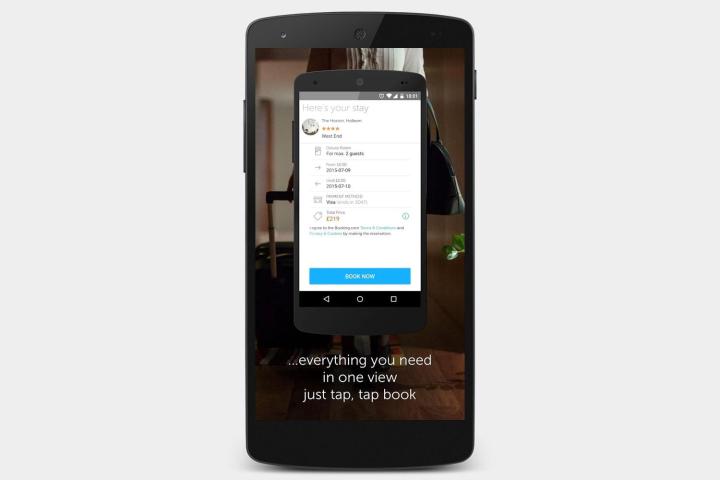
To use Booking Now for Android, users will need to provide their email address, select how many guests they are traveling with and pick the “amenities that will make their stay better.” The Booking Now app will then generate a list of the best places to stay among nearby hotels.
Similar to Tinder, users can swipe left or right to see their next best option. Once users find a hotel they like, they can easily find out more about the place.
If you are looking to stay a hotel in San Francisco, you can see how far away it is from Union Square, what amenities it comes with, and if it includes a restaurant or nonsmoking rooms. Users can even browse reviews by other people who have stayed at the hotel and view pictures of the rooms that are available.
Even though there are plenty of other traveling apps for Android such as Hotel Tonight, Priceline, and Airbnb, Booking.com is hoping to get new customers with their last-minute hotel deals.
“We know there is a growing demand for instantaneous and on-the-move travel with almost half of worldwide reservations made within 48 hours being booked on a mobile device,” said Stuart Frisby, Booking.com’s principal designer. “We aim to really empower our consumers through technology, enabling them to book accommodation that’s just right for them, no matter the screen or device. Booking Now for Android really is the ideal on-the-go solution and travel ‘buddy’ for all Android users.”
You can download Booking Now for Android, iOS and Apple Watch.


